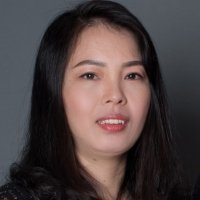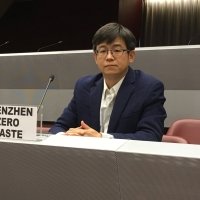WEBCAST Problematic Plastics Series: Can Grassroots Action and EPR Law Stem the Tide of Single-Use Plastics in Asia?
Most plastic waste leaking into the oceans originates from China and four Southeast Asian countries — Vietnam, the Philippines, Thailand, and Indonesia.
Among single-use plastics in Asia, small sachet wrappers for food, soap and cosmetics, are one of the most commonly discarded items. While half of all single-use plastic waste in the Philippines comes from sachets, in China and Vietnam, a tsunami of plastic e-commerce and food delivery packaging overwhelms waste collection, disposal and recycling systems. In 2018, Chinese citizens consumed 9.41 million tons of express packaging material, equal to the weight of 130 million adults. Vietnam only recycles 27 percent of its annual 1.8 million tons of plastic waste. Such single-use packaging is often difficult to recycle because of poor quality, food contamination or, as in the case of sachets, the many layers of different materials.
Speakers will explore how grassroots groups and governments in Asia are starting to come together to identify and pilot policies and practices to improve management of plastic waste and reduce production of problematic plastics.
Miko Aliño (GAIA) will introduce the staggering costs and possible solutions to plastic sachet pollution in the Philippines. Quach Thi Xuan (Pacific Environment) will discuss Vietnam’s new EPR plastic packaging law and how Break Free From Plastic (BFFP) is involved in shaping this legislation. Mao Da (China Zero Waste Alliance) will draw on the 2019 Plastic Free China report to explore the environmental impacts and strategies to reduce online shopping delivery packaging. Nicole Portley (Pacific Environment) will add some commentary drawing on her work engaging grassroots groups in Asia on plastic campaigns.
After initial comments the speakers will take questions from moderator Jennifer Turner (Wilson Center) and the audience. Please direct audience questions to @WilsonCEF on Twitter or to Elijah.Patton@wilsoncenter.org.
This is the inaugural meeting of a new Problematic Plastics series launched by the Wilson Center’s China Environment Forum and the Institute of Developing Economies. The meeting series is supported by a grant from the Japan Foundation’s Center for Global Partnership and is part of our joint project: Turning the Tide to Slow Plastic Waste in Southeast Asia.
Selected Quotes
Nicole Portley
"The Break Free from Plastic movement has learned from prior movements in the environmental space. It’s decentralized; it’s not a centralized gatekeeper. It’s international. . . It’s elevating leadership around the world; it’s not western-centric. It’s systemic thinking: it’s not just going for environmental goals, you also have social and economic justice written in the goals of the movement."
"The spirit of EPR [enhanced producer responsibility] is in the right place. We do want producers to take more responsibility and to be putting less externality out there - less mess for others to clean up."
"We don’t need to think of bans as not being progressive as EPR. When you have an overflowing bathtub, the solution is turning off the tap!"
Miko Aliño
"The point of introducing sachets in mostly low income countries is to provide access to low-income households who can’t afford bulk containers. While it’s good, convenient, and affordable, someone’s gotta pay [the costs]."
"Some cities [in the Philippines] spend as much as 20 percent of their annual budgets trying to manage waste and a big percentage of that is these small plastic packages."
"Unfortunately, you see a lot of companies trying to lobby, and trying to block these initiatives to make sure that there are alternatives to single-use systems."
Quach Thi Xuan
"In Vietnam we [are seeking] a new model to reduce sachets. We also introduced a mobile refillable station with a motorbike. Nowadays, there are more and more models of refillable and reusable businesses."
"The average Vietnamese citizen uses nearly 500 plastic bags per year. But we need to address not only the demand side, but also the supply side. EPR needs regulation to make business as usual very very expensive, meaning [companies] will need to take action to reduce from the upstream."
Mao Da
"EPR is a national strategy to deal with waste. However, in terms of plastic, I don’t think the EPR is currently the main tool [in China]. EPR is included in China’s new Solid Waste Law, but it places greater emphasis on batteries, cars, e-waste, etc. China had a national directive earlier this year and the emphasis is on banning and phasing out five types of [plastic] products, including plastic microbeads, ultra-thin plastic bags, ultra-thin plastic film for agriculture, and plastic products produced from medical plastic waste."
"No one will disagree that e-commerce is a big engine for consumption nowadays but it is also a big engine for waste. It is symbolized by the 11/11 global shopping festival, created in 2009, [which] in Chinese is called CRAZY festival. In the 2016 [11/11 shopping festival], the global merchandise volume reached over 100 billion Chinese yuan...last year the number increased to 260 billion yuan. However, for the [e-commerce packaging], the plastic recycling rate is very low in China, close to 10 percent. Almost all of it goes to landfill or incinerators."
Speakers




Moderator

Hosted By

China Environment Forum
China’s global footprint isn’t just an economic one, it’s an environmental one. From BRI investments in Africa and Asia to its growing presence in Latin America, understanding China’s motivations, who stands to gain - and who stands to lose - is critical to informing smart US foreign policy. Read more


Indo-Pacific Program
The Indo-Pacific Program promotes policy debate and intellectual discussions on US interests in the Asia-Pacific as well as political, economic, security, and social issues relating to the world’s most populous and economically dynamic region. Read more


Environmental Change and Security Program
The Environmental Change and Security Program (ECSP) explores the connections between environmental change, health, and population dynamics and their links to conflict, human insecurity, and foreign policy. Read more


